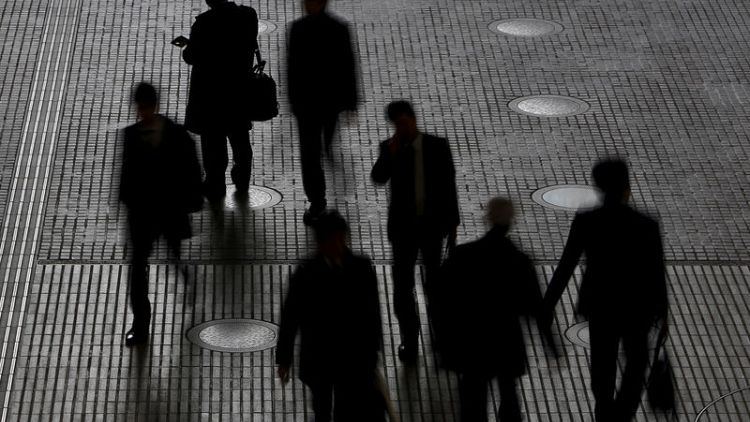TOKYO (Reuters) - Japan's inflation-adjusted real wages tumbled the most in nearly four years in March, government data showed, dashing hope that household income and spending may offset external headwinds.
Real wages fell 2.5 percent in March year-on-year, the biggest decline since June 2015, labour ministry data showed on Friday. It followed a revised 1.0 percent drop in February.
Monthly wage data showed nominal total cash earnings in March fell 1.9 percent from a year earlier, following a revised 0.7 percent annual decrease in February. It was the sharpest decline since June 2015.
A labour ministry official said the big drops from a year earlier might have been caused in part by sampling changes.
Revelations earlier this year that labour ministry officials used faulty polling methods that caused revisions cast doubts on wage data issued by the ministry from 2004 to 2017.
Regular pay, which accounts for the bulk of monthly wages, dropped an annual 0.9 percent in March after a 0.1 percent decline in February, the fastest drop since December 2013.
One-off special payments fell 12.5 percent in the year to March, after a 31.6 percent year-on-year plunge in February.
Overtime pay, a barometer of strength in corporate activity, declined 3.1 percent in March from a year earlier, reflecting efforts to curb overtime in line with the government's campaign to limit long working hours.
The labour ministry said in January it used faulty polling methods in compiling monthly wage data - which covers about 33,000 firms - and had failed to accurately depict the actual strength of wage growth.
The error has made it harder to gauge the trend for wages.
(Reporting by Tetsushi Kajimoto; Editing by Richard Borsuk)



